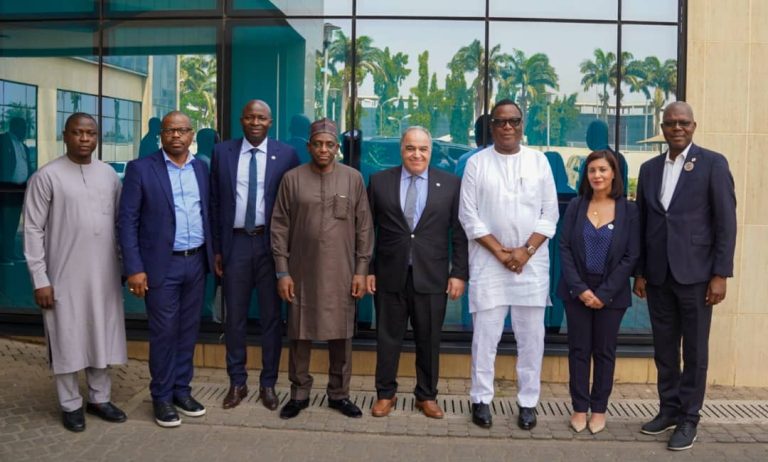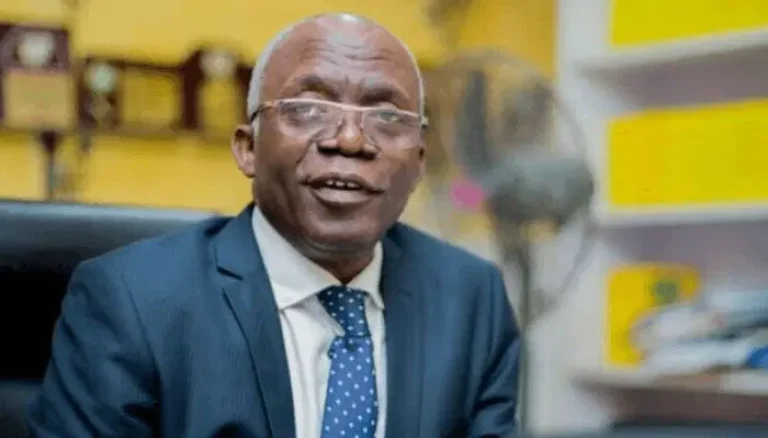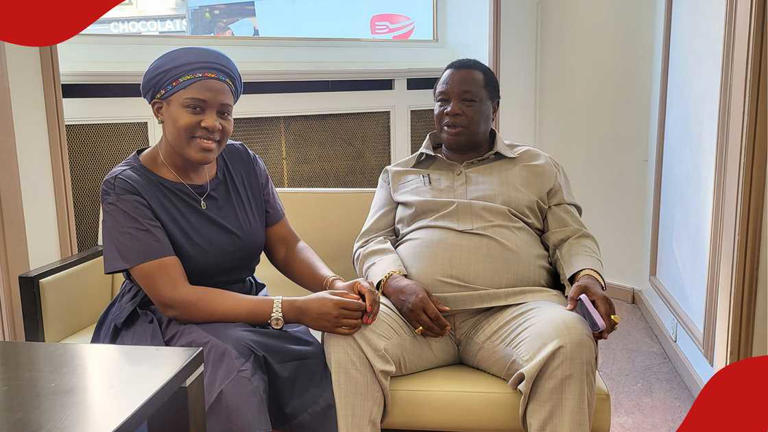
COVID-19 cases and deaths have continued to increase across the country since the beginning of the year.
Data obtained from the Nigeria Centre for Disease Control (NCDC) showed that 193 persons died from COVID-19 within 20 days, between January 4 and 24.
As of Wednesday, January 27, the country has recorded 126, 160 confirmed cases of the virus, with 24, 251 active cases and 1, 544 deaths.
While the country began to witness a second wave since November last year, the significant increase in cases and deaths in the last three weeks has raised concerns.
President Muhammadu Buhari had on Wednesday signed the COVID-19 Health Protections Regulations 2021 to ensure compliance to COVID-19 safety protocols.
The guidelines stated among others that those who contravened the provisions risk a fine or a term of six months imprisonment.
“An offence under these Regulations is punishable, under Section 5 of the Quarantine Act,” it said.
The federal government had also on Monday confirmed that the United Kingdom B117 strain of COVID-19 was in Nigeria.
Speaking during the joint national briefing of the task force, the Secretary to the Government of the Federation (SGF) and Chairman Presidential Task Force (PTF) on COVID-19, Boss Mustapha, said that the country’s scientists have been sequencing the variants of the virus.
He expressed concern over the increasing number of cases in the last few weeks, saying the PTF has closely followed the rising number of infections reported daily.
The Director-General of the Nigeria Centre for Disease Control (NCDC), Dr Chikwe Ihekweazu, said it was not surprising to discover the new strain of COVID-19 in the country given the frequency of travel between the UK and Nigeria.
He said that four Nigerians have tested positive for the highly contagious COVID-19 strain. “When they were tested, this strain was found in them within a week of returning from Nigeria.
“This was reported to us through the international health regulations and it is most likely this strain was acquired in Nigeria.
“With our partners, the African Centre for Excellence in Genomics in Ede, we sent 50 samples to them and one of those samples had the UK variant linked to increased transmission,” he said.
Between Thursday, January 21 and Wednesday, January 27, the country recorded a total of 11, 469 new infections and 59 deaths.
Osun State for instance recorded five deaths from COVID-19 related complications between Tuesday and Wednesday.
On Friday, January 22 alone, the country recorded 2, 314 new cases with 831 cases from Lagos State.
Data obtained from the NCDC also showed that in the epidemiological week one, which ran from January 4 to 10, the number of new confirmed cases increased to 9,940 from 5,733 in week 53, the last week of December.
Forty-seven deaths from COVID-19 were also reported in the week in 16 states and the Federal Capital Territory (FCT).
In the second week, January 11 to 17, the number of new confirmed cases increased to 10,300 from 9,940 in week one. Seventy-seven deaths were also reported during the week in 15 states and FCT.
And then in week three, January 18 – 24, 2021, the number of new confirmed cases increased to 11,179 from 10,300 in week two. Sixty-nine deaths were reported in the week from the FCT and 16 states.
The Osun State Commissioner for Health, Dr Rafiu Isamotu, said the report of increased fatalities was a warning sign to citizens not to treat COVID-19 with kid gloves.
“The sting of the infection can be avoided if we all take personal responsibilities.
“The government has shown responsibility by increasing testing capacity across the state and intensifying sensitization,” he said.
In Nasarawa State, Governor Abdullahi Sule said three local government areas of Lafia, Keffi and Karu still retain the highest number of positive cases, put at 80 per cent.
He called on the people of the state to continue to maintain the COVID-19 protocols, adding that the rise in the number of confirmed cases in the state, is attributable to the increase in the number of tests being conducted across the state on a daily basis.
There are speculations that the deaths could be due to the new COVID-19 variant that was reported recently, however, experts disagree.
An epidemiologist at the Lagos University Teaching Hospital (LUTH), Prof. Bayo Onajole, said “The new variant might be correlated with the case severity we are seeing in COVID-19 that is ongoing during this second wave.
“But, there is no study so far to show that there is a relationship between the death and the new variant.”
A reliable source at the Lagos Ministry of Health said there are many unreported deaths in the community, adding that the increase in the number of deaths is apparent.
“By the time we are seeing this number of deaths in the health facilities, obviously there are more unreported deaths in the community.”
He said there is no justification between the new variant and the death.
He insisted there is a need to provide evidence, sequence the death before concluding it was due to the variant.
“Whoever said the new variant and the deaths are inter-twined is merely assuming,” the top official said.
Asked if the UK and South African strains are responsible for the surge in cases, National Incident Manager (NIM) of the Presidential Task Force (PTF) on COVID-19, Dr Mukhtar Muhammad, said this is still under consideration.
He said, “We put it as a strain of interest because of some characteristics we noted with that mutation. It was not a mutation that has been seen before.
“Currently, scientists are thinking that these current mutants may actually be resistant to the anti-bodies or resistant to our vital cells that fight infections or may even be resistance to the vaccines that were already developed.”
However, he added that the country does not even need a new strain of the virus for cases to increase going by the attitude of Nigerians to safety measures.
According to him, when one goes out in the streets even in Abuja, one can see people going around and conducting their businesses without facemasks.
He said, “I just came out of a market now in Abuja, out of 10 people, you hardly find one person wearing a facemask.
“So, why won’t the virus propagate. People mingle anyhow, you have large gatherings, see our buses packed and carrying people with no facemasks, why won’t the infection go round? We don’t have to have a new strain for the rising cases.”
Experts had earlier attributed the second wave in the country to the continued violation of protective measures against the disease by the public.
The World Health Organisation (WHO) in a statement on Thursday said COVID-19 cases and deaths are surging in Africa as new, more contagious variants of the virus spread to additional countries.
“Over 175 000 new COVID-19 cases and more than 6200 deaths were reported in Africa in the last week while infections rose by 50 per cent on the continent between December 29, 2020, and January 25, 2021, when compared with the previous four weeks,” the statement said.
Speaking during a virtual press conference facilitated by APO Group, WHO Regional Director for Africa, Dr Matshidiso Moeti, said: “The variant which was first detected in South Africa has spread quickly beyond Africa and so what’s keeping me awake at night right now is that it’s very likely circulating in a number of African countries.”
WHO said the variant that was initially detected in the United Kingdom has been found in The Gambia and Nigeria, adding that further research was needed to determine whether the new strain causes more severe illness.
“In addition to the new variants, COVID-19 fatigue, and the aftermath of year-end gatherings risk powering a perfect storm and driving up Africa’s second wave and overwhelming health facilities,” said Dr Moeti.
“Africa is at a crossroads. We must stick to our guns and double down on the tactics we know work so well. That is mask-wearing, handwashing and safe social distancing. Countless lives depend on it.”
The National Incident Manager (NIM) of the Presidential Task Force (PTF) on COVID-19, Dr Mukhtar Muhammad, said the task force would ensure compliance by working with state governments to set up taskforces that would monitor public places and ensure compliance.
He said that people found violating protocols are liable to prosecution.
“And as we know, that would be imprisonment and/or a fine that would be determined by the task force.
“Secondly from the federal government, we are also sensitizing all our security agencies to live up to expectations of what Mr President has endorsed.
“And we are going to start work with the FCT monitoring team and the task force that will go round all the public places in the FCT and ensure that they get people to comply.
“Our central taskforce will start visiting some of the states to work with them, support them and also carry out on-the-spot checks,” Muhammad said.
Reacting to the president’s signing of the new Health Protection Regulation, 2021, the Executive Secretary of the National Human Rights Commission, Tony Ojukwu, said although the law was necessary to protect the people from COVID-19 virus, it must be enforced in accordance with fundamental human rights.
He advised law enforcement agents to approach violators respectfully, warning that if law enforcement agencies break offenders’ limbs in the course of enforcement of the law, they have violated their rights.
“For us as a commission, regulations are in the best interest of everybody because of COVID-19.
“Everybody has the right to health, while the government has a duty to protect the people from being infected by COVID-19. But the law enforcement officers must respect human rights while enforcing the regulation,” he said.
He said enforcement was not an excuse for violating people’s rights. “The difference here is that you have the right to arrest somebody for violating the regulations, but you don’t have the right to torture him while arresting him.
“You don’t have the right to deny him a fair hearing or not subject him to a court of law to try him.
“If the constitution says you have to take the person to court, you have to take him/her to court. we have mobile courts which can deal with these things. It is not because you are enforcing COVID restrictions, you now keep somebody in detention for three months without trial.
“If you remember the first one, there were no mobile courts until we started shouting. And when they brought mobile courts, there were no lawyers to defend the people, and there was the challenge of fair hearing.
“So, the law itself has no problem, it is the implementation.”
For his part, the Executive Director of the Centre for Peace and Conflict Management, Noah Ajare, what the government needs more is to focus on serious orientation for the people and law enforcement agencies to prevent abuse of the law.
“As we have observed with many other laws in Nigeria, enforcement is a major concern. By nature, we have a tendency not to obey such laws,” he said.
But Abuja-based Senior Advocate of Nigeria Ahmed Raji questioned the powers of the president to enact penal laws under the guise of regulations without going through the parliament, and whether such laws can cover the entire country or just the FCT.
“Does the federal government have the power to legislate on the whole country on all matters? And does the legislative power reside with the president? And what model of a federation is that?” he asked. (Daily Trust)








800132 1103not everyone would need to have a nose job but my girlfriend actually needs some rhinoplasty coz her nose is kind of crooked- 959854
179972 407664You can undoubtedly see your skills within the function you write. The world hopes for more passionate writers like you who arent afraid to say how they believe. At all times follow your heart 345851